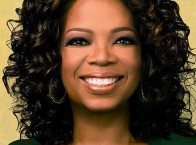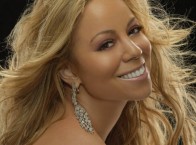Alex Ferguson, considered one of the greatest and most successful managers of all time, holds the record for being the longest-serving manager of Manchester United, having overtaken Sir Matt Busby's record on December 19, 2010. Here are some really interesting things to know about the Scottish former football manager:
- Ferguson was an average player with modest credentials who went on to become Britain’s most successful football manager. He has to his credit five FA Cups, one European Cup-Winners Cup, one League Cup and the Champions League.
- He was born Alexander Chapman Ferguson, on December 31, 1941, in Govan, Glasgow, Scotland, to Alexander Beaton Ferguson and Elizabeth Hardie. He has a younger brother, Martin Ferguson.
- He attended Broomloan Road Primary School and later moved to Govan High School. In July 2001, he was conferred an Honorary Degree of Letters by the Glasgow Caledonian University.
- Ferguson’s football journey began at Harmony Row Boys Club in Govan and later moved to Drumchapel Amateurs Football Club, for youth. At the age of 16, on November 15,1958, he made his amateur debut in SFL Division Two, with the Queen’s Park and scored in his first match in a 2-1, loss to Stranraer.
- His career never really took off with Queen’s Park despite scoring 15 goals in 31 matches and he subsequently moved to St. Johnstone in 1960, but still he was not able to cement his place as regular. He scored 19 goals in 37 matches in four seasons.
- He turned professional in 1964, when he signed up with Dunfermline Athletic and in the 1965-66 season he recorded 45 goals in 51 games apart from being the top goal scorer in the Scottish League with 31 goals. In all he scored 66 goals in 89 appearances in three seasons.
- Ferguson was transferred to Rangers in 1967 for a record fee of £65,000. In two seasons with the club, he scored 35 goals in 66 games but still ended up being relegated to club’s junior side after the loss of Scottish Cup finals to Celtic. He was blamed for the loss when he reportedly failed to mark Celtic captain, Billy McNeill.
- In October 1969, he moved to Falkrik Football Club, Brockville, Park, where he doubled up as a coach-cum player aggregating 46 goals in 164 appearances in four seasons. He ended his career as a player after turning out for Ayr United for a season in 1974, scoring 10 goals in 28 games.
- Ferguson made his debut as a manager in June 1974, at a relatively young age of 32 with East Stirlingshire F.C. and in the following October he was invited to manage St. Mirren F.C.
- In his four season with the St. Mirren club, he transformed the team from lower half of Second Division to First Division champions in 1977 and discovered talents like Billy Stark, Tony Fitzpatrick, Lex Richardson, Frank McGravey, Bobby Reid, and Peter Weir.
- In May 1978, he was sacked as a manager of St. Mirren, after it was alleged that in breach of contract he had made payments to players and was accused of intimidating behavior towards his office secretary. He appealed against the club at an industrial tribunal but lost.
- In June 1978, he joined Aberdeen as manager and initially had problems with lukewarm response from the player. He had one semi-final at Scottish Cup and two finals at Scottish League Cup in two seasons to show.
- A strict disciplinary man, he was dissatisfied with Aberdeen’s deliberately created ‘siege mentality.’ Nicknamed ‘Furious Fergie’ he once fined one of his players for overtaking him on a public road and another time kicked a tea urn at the players at half time for poor performances.
- He had his first success when Aberdeen won the 1979-80 Scottish League for the first time in more than twenty-three years. This initial success was built on, with Scottish Cup wins in three successive seasons from 1982 to 1984 and two more league titles in 1983-84 and 1984-85.
- Ferguson had a success of some noteworthy when he led Aberdeen to ‘European Cup Winners’ Cup, in 1983, defeating Real Madrid 2-1, to become only the third Scottish team to win a European trophy. They went on to win the European Super Cup in December that year defeating Hamburger SV.
- He was appointed an Officer of the Order of the British Empire in the year 1985 New Year Honors. He is only the eighth football manager or player to receive a knighthood.
- He took charge of Scottish national side on October 1, 1985, during the 1986 World Cup qualifiers when then manager Jock Stein died. He was on charge for total of ten matches, winning three, losing three and drawing four before stepping down June 15, 1986, after Scotland failed to go past the group stage of World Cup campaign.
- On November 6, 1986, he was appointed manager of the English Premier Club, the Manchester United and helped them finish the season creditable 11th place after being placed second from bottom when he took over.
- In the 1992-93 season Ferguson helped the club win its inaugural Premier League title, ending Manchester United’s 26–year run without an English league title. He was voted Manager of the Year by the League Manager Association.
- He went on to enjoy unprecedented success over the next two decades winning 13 Premier League titles with Manchester United and in total he lifted more than 30 trophies in his time in charge at Old Trafford.
- Adding to his Premier League titles he has also won five F.A. Cup, four League Cups, two UEFA Champions League, a FIFA Club World Cup, UEFA Super Cup, UEFA Cup Winners Cup and Inert-Continental Cup during his tenure at Manchester United.
- Ferguson has won Premier League Manager of the Season on 11 occasions, as well as picking up the monthly accolade 27 times and numerous other individual awards, such as LMA Manager of the year and LMA Manager of the Decade.
- Apart from his credentials as a football manager, he has been awarded honorary degree by eight different universities. He has received four of them from native Scotland, three in the North West of England and one in Northern Ireland.
- On May 8, 2013, Ferguson announced his retirement as a manager a day after securing his 13th Premier League title. At the end of 39-year long journey as manager, he is credited with 1,253 wins in 2,155 matches that he managed.
- In 2003, Ferguson was involved in a dressing room argument with United Player David Beckham after he failed to trackback on an Arsenal goal. Ferguson allegedly stoned a football boot in frustration, which hit the player in the face.
- In January 2014, Ferguson was appointed as the UEFA Coaching Ambassador. He will be chairman of the forum of elite coaches apart from being member of the technical study group of the Champions League and the European Championship.
- Following his retirement, he took up long time teaching position at Harvard University, where he would be lecturing on a new course titled ‘The Business of Entertainment, Media and Sports.’ His blueprint for success was included in the Harvard Business Review in a series of interview with Anita Elberse.
- He is married to Cathy Ferguson since 1966 and the couple have three sons, Mark, Darren and Jason. Their celebrated marital life has lasted for more than 51 years.
- A bronze statue of Ferguson, designed by Scottish sculptor Philip Jackson, was unveiled outside Old Trafford on November 23, 2012. He has also a road named after him near Old Trafford from Water’s Reach to Sir Alex Ferguson Way.
- The phrase ‘Fergie Time’ has come into being after it has been suggested that Ferguson’s intimidation of referees resulted in generous injury time being added in matches where Manchester United were behind. Also the phrase ‘squeaky-bum time’ coined by Ferguson is reference to tense final stage of game, has been included in the Collins English Dictionary.
- Alex Ferguson Net Worth: $70 Million

 Share on Facebook
Share on Facebook





















